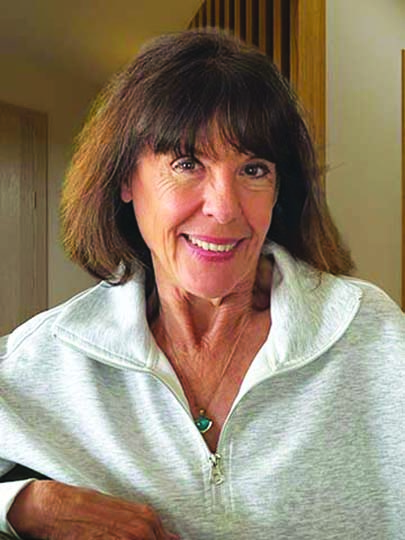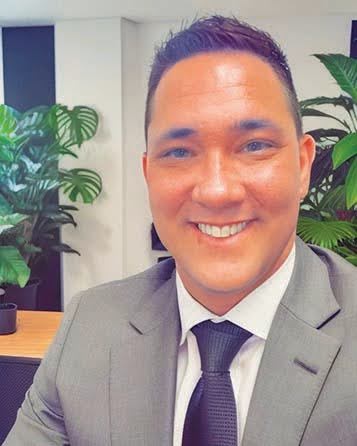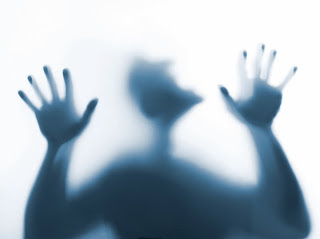How does it happen and what can we do about it
By Dan Stone, MSW, LCSW, LISAC
When I had a few years of recovery, my family and I went on a Caribbean cruise. One day I decided to catch some sun on one of the decks. The majority of the people were drinking but I was not triggered as I heard the servers announce special drink deals like “Bahama Mama.”
Wondering if anyone around me was sober, I noticed a man, nearby, who was drinking Ginger Ale. Somehow we started to converse. He stated he had 12 years of sobriety from alcohol and drugs, but did not participate in 12-step recovery. He had attended meetings when he first got sober but had not done so for many years. It was not his “thing.” The longer we talked the more uneasy I became. Sadly, this gentleman was filled with resentment and bile. He was quite miserable. It happened to have been his birthday and he was not a happy guy.
The Phenomena of Dry Drunk
I had heard about “dry drunk” at meetings and I was now face to face with a prime example. It made a powerful impression on me. Why get sober to be that unhappy? In preparing for this article, I started thinking about defining the phenomena of dry drunk. The word “dry” refers to abstinence from substance use, a person that has stopped using. “Drunk” implies behaviors and attitudes that occur when intoxicated. Therefore, “dry drunk” can be described as intoxication without alcohol or abstinence without recovery. Many recovering people are aware of an old expression, “What do you get if you sober up a horse thief? A sober horse thief.” You could add, “You still have to teach him how to stop stealing horses!”
This is an exaggeration but it helps us to understand that when people become sober, there is a need to make internal changes to avoid a relapse or to become like the man on the cruise. The syndrome, or group of symptoms, can be identified in two types of people.
Some addicts and alcoholics have achieved abstinence but with limited emotional and behavioral changes. They tend to stay fixed in early recovery. Another group is the people who were once active in their recovery and making progress, but have returned to rejecting help, self-pity, defensiveness, impulsivity, and resentment. We often see people, in this group, becoming compulsive in process addictions such as gambling, spending, internet, and sex. I remember knowing a man who had two years clean and sober. He was working out intensely and was looking very buff. Eventually, he started using IV steroids and this lead to a return to his drug of choice, IV heroin. Fortunately, he was able to make it back into recovery.
Post Acute Withdrawal Syndrome
In early recovery we experience what has been described as Post Acute Withdrawal Syndrome (PAWS). I experienced the symptoms as difficulty sleeping restfully, short term memory loss, coordination problems, impaired focus and concentration, and mood swings. I had difficulty comprehending what I read. My forgetfulness was so bad that my wife told our counselor that I had Alzheimer’s disease. I had two minor accidents in the first month of sobriety that had freaked me out after 20 years of driving under the influence without an accident. My moods varied throughout the day between irritability and immense sadness. I later learned that my central nervous system was healing and the symptoms would lessen over time. This can become dangerous for early recovering people as the flood of feelings can be overwhelming. Unless this phenomenon is understood and treated, a person can fall into the category of dry drunk.
There are obvious and subtle traits that emerge in a person experiencing a dry drunk. The Big Book (Alcoholics Anonymous, 2001), on page 52, describes what can be referred to as untreated alcoholism. I believe these “bedevilments” can also refer to abstinent alcoholics and addicts who have stopped working a program of recovery.
“We were having trouble with personal relationships, we couldn’t control our emotional natures, we were prey to misery and depression, we couldn’t make a living, we had a feeling of uselessness, we were full of fear, we were unhappy, we couldn’t seem to be of real help to other people.”
Recently, I was having a conversation with my sponsor about dry drunk. We were describing examples of behaviors that fit under this description. There are people who will work steps one and twelve and never address the other ten steps. They stay clean and sober and may perform service such as speaking at meetings and helping the newcomer. When you listen to them, it sounds like they are models of recovery. Yet, in other ways they may betray the lack of internal changes that appear in people who have become spiritually evolved and truly happy.
The Dry Drunk Syndrome
One prime example is “thirteen stepping”. Many of us are familiar with this behavior. A newcomer starts attending meetings. She or he may be approached by someone who has several years of sobriety. Under the guise of being helpful, they offer support. What starts out as innocent meetings over coffee sometimes become romantic relationships. After the initial courtship, the relationship may end. Often, the newcomer may relapse when feeling confused and heartbroken. This is a scenario that is unpleasant. There is an incongruity within people who articulate spiritual principles and behave otherwise. I wish I could say that this is a rare occurrence but I have observed this, repeatedly, over my years of recovery.
There are several observable traits that can be classified as dry drunk syndrome. Grandiosity can be manifested in behaving as if we are unique and the rules don’t apply to us. We may believe in our self importance and superiority. We may revert to self centeredness which can also manifest itself as self-pity.
Sometimes we may become judgmental, making harsh criticisms of others and engaging in cognitive distortions such as black and white thinking. This can manifest in making comparisons either favorably to ourselves or self condemning. One of my warning signs has been when I’m at a meeting and I hear the same story I’ve heard many times before. I find myself becoming impatient as I mentally criticize the person who is sharing. I believe I can label this as a form of intolerance.
The Red Flags
Another red flag is complacency. I believe when we are in dry drunk behavior it can often lead to relapse. I know I am heading in the wrong direction when I start “blowing off” activities that are part of my positive self care. A warning sign is deciding not to go to meetings or other treatment activities, declining social interactions with friends or family, procrastination and wishful thinking or fantasizing ruminations. Thoughts of wanting to be happy without taking action or a sense of increasing inertia can be predictors of relapse. Indecision or paralysis can become more dominant in our thinking. I believe it is difficult to stay in one place when in recovery. Either we are moving forward or backwards. It is said that we are always either moving away from a drink or towards it. We need to continue to be introspective and self aware. I have revised a statement from the “Big Book”, “I know only a little”. I believe we have to take ourselves to higher levels of awareness and improvement. A structure that is not renovated and repaired will experience entropy, or a return to chaos. I have never been comfortable with the concept of maintenance. If I want to be happy, joyous and free, I need to learn more, do more and connect more both with others, myself and my higher power.
Unless there is an intervention by ourselves or others who care, we start to experience discomfort on a mental, physical, cognitive and spiritual level. Some of us experience increasing mood swings, variability between irritability, anxiety, and sadness. We may start to think more pessimistically about the future. Our ability to balance past, present and future becomes unstable and we focus more on fear, remorse, and resentment. We start to regret the past and we wax nostalgic for the “good old days”. Sometimes, these thoughts take the form of euphoric recall. I have a built in forgetter in my brain. Without self inventory, I might start longing for the “summer of love” back in 1967 rather than remembering the pain of the Fall of 1987. Once again daydreaming and escapism start to insert themselves into my thinking.
Physically, I may start to neglect exercise, nutrition and rest. My immune system becomes less effective and I am prone to somatic complaints. Focus and concentration decrease. I become less effective in my work, making mistakes as I bemoan the way the powers that be screw things up and are insensitive to my needs.
What Happened to My Spirituality?
Spiritually, I start to pull away from conscious contact and connections. I stop routines of prayer and meditation. I narrow my world view and question the existence of a power greater than myself. Cynicism gains a foothold and thoughts of being helpful to others get pushed out by my egocentrism. Ultimately, the warning signs of relapse escalate until the thought of returning to destructive behavior is enticing. Thoughts of being in recovery are slowly replaced with thoughts like, “This is too hard. Why me? And, “you would use if you had my problems.” I start to have thoughts of wanting to use or act out. Mental cravings become prevalent. I rationalize that “one won’t hurt”, “no one has to know, I’ll start over tomorrow, and I deserve this”. As I go through this process, my ability to intervene on my own behalf becomes less likely. I start to plan my relapse.
Throughout this process, I am more vulnerable to high risk factors and situations. Negative feelings like resentment and shame rear their ugly heads. Positive feelings like reward and celebrating my successes may rationalize the use of substances or other behaviors. Physical discomfort or illness can make us more susceptible to thoughts of relieving distress in old ways. We experience problems with sleeping and look to unhealthy ways to fix the problems. We become secretive about pain medications and may begin to abuse them. We begin keeping secrets.
We start to test our control by placing ourselves in risky situations. We become like the jaywalker, putting ourselves in danger. We become more vulnerable to social pressure when around people who do not know we are in recovery. We want to belong and feel shame about being different. We reminisce about the ways we used to have fun using social lubricants to enjoy music, films, dancing, and sex. Our ability to cope with conflict becomes inappropriate. We start manifesting inappropriate responses in coping with conflict. We become quick to anger and argue in an extreme manner. We bring up irrelevancies when dealing with the here and now. We return to the use of bad language. We externalize blame and alienate our partners or significant others.
Are We all Subject to Dry Drunk Syndrome?
As I write this I realize how bleak this sounds. The consequences seem dire. Are we all subject to dry drunk syndrome? What can we do if we detect that we are pulling away from what we have worked so hard to achieve. Certainly corrective measures are necessary. I think that at any time we can be vulnerable to dry drunk behavior. If we stay in recovery long enough we are going to experience life on life’s terms. Loved ones become ill and die. Relationships can become troubled. We experience career setbacks. We find ourselves in the unenviable position of having to cope with loved ones who succumb to addiction. We may be troubled and unsure about the future.
I have to increase my attendance at meetings. Sometimes, I need to hear new voices and regain enthusiasm as I get a fresh perspective. I have found that meetings that are literature based are helpful. Also, hearing others talk about their experience with the steps can help me to regain focus.
I didn’t get sober by myself and I need others to confront me, in a loving way, when I stray from the path. If we have avoided working with a sponsor, it’s time to get one. If we have created distance from our current sponsor, we need to get reacquainted. Perhaps we have a sponsor that is unavailable or inaccessible. The sponsor may be caught in the same malaise that we are struggling with. It may be an opportunity to work with someone else. I want a sponsor and people in my support system, to confront me when I am engaging in self sabotage. But I want this to happen in a loving spirit. Many of us have experienced abuse and require more patience and understanding. When I was in early recovery, I attended a spiritual retreat for recovering men in New Jersey. The leader for the weekend was a priest who happened to be in recovery himself. I will never forget Father Jack saying, “If your sponsor never makes you feel uncomfortable, you better get a new sponsor”.
I have always worked with sponsors. I enjoy the relationship and value the guidance and support. Several years ago I was traveling to the east coast for business. My most frequent stop was to New York City. I would fly in on a Sunday and return the following Saturday. I have an older daughter who lives in New Jersey and works in Manhattan. My routine was to call her to see if she was available for lunch or coffee. One week, I called after I arrived. Monday she didn’t get back to me. Tuesday and Wednesday were the same. I was now irritated and hurt that she didn’t return my call. My plan was to call her again and give her a piece of my mind. I had my guilt trip script worked out.
Somehow I thought that maybe I should call my sponsor first. When I did so he said, “Why don’t you reconsider. If you tell her what you are prepared to say, you might create some bad feelings. Why don’t you try something like this instead?” “Hi, sweetheart. I called and didn’t hear from you. Is everything all right? Is there anything I can do to help you?” He also reminded me that she was pregnant at the time and had a toddler at home. She had a job that required working on deadlines. I followed his suggestion. She called back saying, “Dad, I’m really sorry. The baby has a cold and I’m all jammed up”. I was so grateful that I called him first.
Along with meetings, we can get involved in service such as taking meetings to correctional institutions and treatment centers, reaching out to others, chairing meetings and other activities. Sponsorship has always been personally helpful. There have been times when I was preoccupied with my own problems and a sponsee called asking for support. When I focus on how I can help him, I forget about me for the moment. Participating in the fellowship aspect of recovery can help us to feel a part of what’s going on.
Co-occurring issues
Many of us have co-occurring issues such as Post Acute Traumatic Disorder (PTSD), depression, Bipolar Disorder, anxiety and issues relating to our family of origin. Some of us have grown up in dysfunctional homes that have left lasting scars. At three years of sobriety I joined a therapy group. It was helpful in addressing anger issues related to my childhood experiences. There are some problems that cannot be treated at 12-step meetings. We may need professional help. Sometimes psychiatric care is necessary. Staying sober with untreated Bipolar Disorder can be difficult. Sometimes, the workplace can help by providing Employee Assistance Programs (EAP) on a confidential basis.
Spirituality is a valuable coping tool regardless of belief systems. Many people have confused spirituality with religion. It doesn’t have to include belief in a personal deity. There are many ways to explore our personal definitions of what is spiritual. Certainly, participation in religious practices has often helped. Yoga and meditation have proven helpful in helping us to get centered. Exercise and proper nutrition are also helpful.
In closing, it’s important to remember that dry drunk syndrome does not mean that we have to relapse. It can be corrected. In fact, when we have the awareness that we need to make changes and have the willingness to do so, we can experience our recoveries in ways that can be even more fulfilling. We can, then, experience life to the fullest.
Dan Stone, MSW, LCSW, LISAC is a member of the Clinical Team and Cottonwood Team since 1995. A native of Brooklyn, New York, Dan received a B.A. in History from Brooklyn College, and after a twenty-year career as a New York City schoolteacher got an MSW from New York University School of Social Work. He is a certified thanatologist working in the area of death, dying and bereavement, and has received training and certification through the Association for Death Education and Counseling. Dan’s extensive training and professional experience is augmented by 22-years of personal experience with recovery from chemical dependency.
For more information on Cottonwood Tucson visit www.cottonwooddetucson.com or call 800 – 877-4520.


































